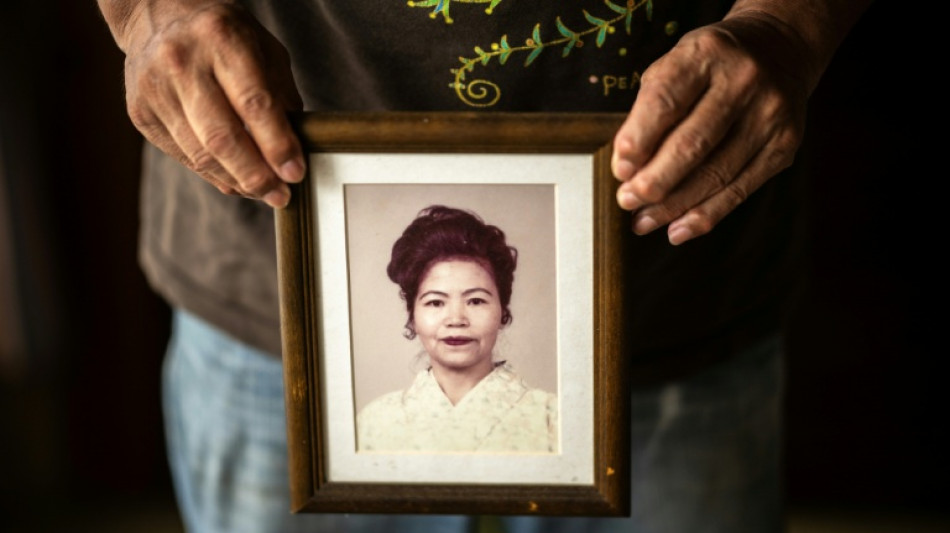
-
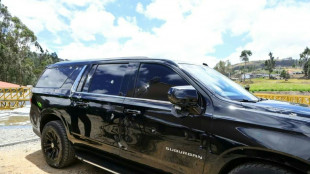 Ecuador president unharmed after apparent gun attack on motorcade
Ecuador president unharmed after apparent gun attack on motorcade
-
Lyon exact revenge on Arsenal, Barca thrash Bayern in women's Champions League

-
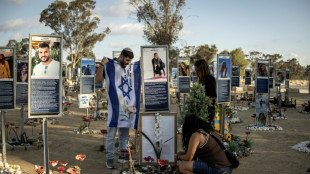 Trump says 'real chance' to end Gaza war as Israel marks attacks anniversary
Trump says 'real chance' to end Gaza war as Israel marks attacks anniversary
-
Gerrard brands failed England generation 'egotistical losers'

-
 NFL fines Cowboys owner Jones $250,000 over gesture to fans
NFL fines Cowboys owner Jones $250,000 over gesture to fans
-
Bengals sign veteran quarterback Flacco after Burrow injury

-
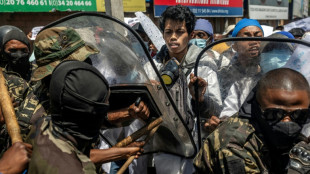 New prime minister inspires little hope in protest-hit Madagascar
New prime minister inspires little hope in protest-hit Madagascar
-
Is Trump planning something big against Venezuela's Maduro?

-
 EU wants to crack down on 'conversion therapy'
EU wants to crack down on 'conversion therapy'
-
French sex offender Pelicot says man who abused ex-wife knew she was asleep

-
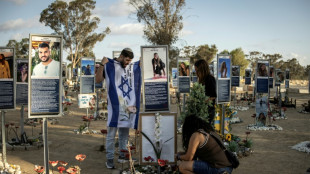 Trump says 'real chance' to end Gaza war as Israel marks Oct 7 anniversary
Trump says 'real chance' to end Gaza war as Israel marks Oct 7 anniversary
-
UK prosecutors to appeal dropped 'terrorism' case against Kneecap rapper

-
 Spain, Inter Miami star Alba retiring at end of season
Spain, Inter Miami star Alba retiring at end of season
-
EU targets foreign steel to rescue struggling sector

-
 Trump talks up Canada deal chances with visiting PM
Trump talks up Canada deal chances with visiting PM
-
Knight rides her luck as England survive Bangladesh scare

-
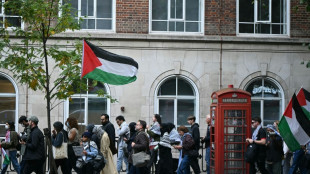 Pro-Gaza protests flare in UK on anniversary of Hamas attack
Pro-Gaza protests flare in UK on anniversary of Hamas attack
-
Top rugby unions warn players against joining rebel R360 competition

-
 Outcast Willis 'not overthinking' England absence despite Top 14 clean sweep
Outcast Willis 'not overthinking' England absence despite Top 14 clean sweep
-
Trump says 'real chance' of Gaza peace deal

-
 Macron urged to quit to end France political crisis
Macron urged to quit to end France political crisis
-
No.1 Scheffler seeks three-peat at World Challenge

-
 Canadian PM visits Trump in bid to ease tariffs
Canadian PM visits Trump in bid to ease tariffs
-
Stocks falter, gold shines as traders weigh political turmoil

-
 Senators accuse US attorney general of politicizing justice
Senators accuse US attorney general of politicizing justice
-
LeBron's 'decision of all decisions' a PR stunt

-
 Observing quantum weirdness in our world: Nobel physics explained
Observing quantum weirdness in our world: Nobel physics explained
-
WTO hikes 2025 trade growth outlook but tariffs to bite in 2026

-
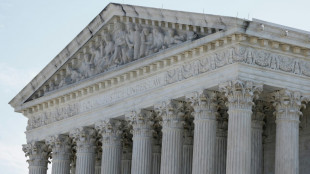 US Supreme Court hears challenge to 'conversion therapy' ban for minors
US Supreme Court hears challenge to 'conversion therapy' ban for minors
-
Italy's Gattuso expresses Gaza heartache ahead of World Cup qualifier with Israel

-
 EU targets foreign steel to shield struggling sector
EU targets foreign steel to shield struggling sector
-
Djokovic vanquishes exhaustion to push through to Shanghai quarterfinals

-
 Stocks, gold rise as investors weigh AI boom, political turmoil
Stocks, gold rise as investors weigh AI boom, political turmoil
-
Swiatek coasts through Wuhan debut while heat wilts players

-
 Denmark's Rune calls for heat rule at Shanghai Masters
Denmark's Rune calls for heat rule at Shanghai Masters
-
Japanese football official sentenced for viewing child sexual abuse images
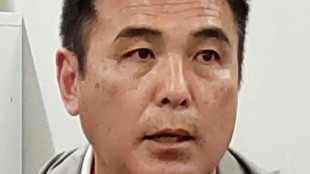
-
 'Veggie burgers' face grilling in EU parliament
'Veggie burgers' face grilling in EU parliament
-
Trio wins physics Nobel for quantum mechanical tunnelling

-
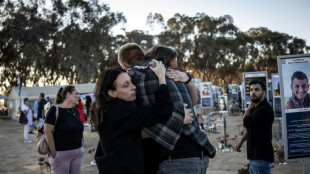 Two years after Hamas attack, Israelis mourn at Nova massacre site
Two years after Hamas attack, Israelis mourn at Nova massacre site
-
German factory orders drop in new blow to Merz
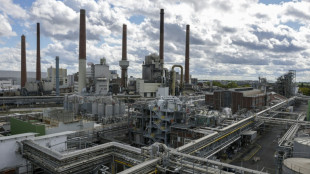
-
 Man City star Stones considered retiring after injury woes
Man City star Stones considered retiring after injury woes
-
Kane could extend Bayern stay as interest in Premier League cools

-
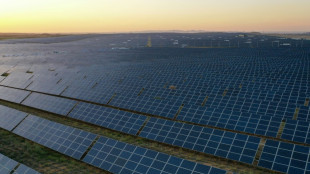 Renewables overtake coal but growth slows: reports
Renewables overtake coal but growth slows: reports
-
Extreme rains hit India's premier Darjeeling tea estates

-
 Raducanu retires from opening match in Wuhan heat with dizziness
Raducanu retires from opening match in Wuhan heat with dizziness
-
UK's Starmer condemns pro-Palestinian protests on Oct 7 anniversary
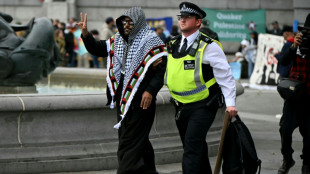
-
 Tokyo stocks hit new record as markets extend global rally
Tokyo stocks hit new record as markets extend global rally
-
Japan's Takaichi eyes expanding coalition, reports say

-
 Canadian PM to visit White House to talk tariffs
Canadian PM to visit White House to talk tariffs
-
Indonesia school collapse toll hits 67 as search ends
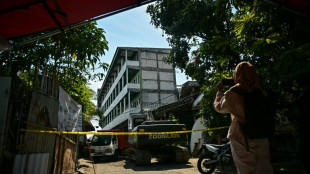

Okinawa a reluctant host for US troops 80 years after WWII
Okinawa resident Hiromasa Iha can still recall the screams of his classmates and teachers after a US military jet crashed into his elementary school, killing 18 people more than six decades ago.
As people globally commemorate the 80th anniversary of the end of World War II, the 72-year-old retired businessman is among many residents who oppose the American troops stationed on their island ever since.
He joins dozens of islanders in near-daily protests against the US forces.
The United States has around 54,000 military personnel stationed in Japan, mostly on Okinawa, and a string of incidents over the years, including sexual assault cases, have angered residents.
"For us, these crimes and accidents are not someone else's business, and we feel a pressing unease that we can't predict when these things may happen again," he told AFP, recalling the 1959 school incident.
"We want the bases to go."
The island region, a subtropical paradise with a huge tourism industry, hosts 70 percent of all American bases in Japan and serves as a key US outpost to monitor China, the Taiwan Strait and the Korean peninsula.
The bloody Battle of Okinawa near the end of the war led to the US occupation of the island until 1972, during which troops seized private land in Okinawa to expand their presence in what is locally known as a "bayonet and bulldozer" campaign.
During the Cold War, US troops in Okinawa were seen by Washington as a deterrent against the spread of communism.
Now, both Tokyo and Washington stress the strategic importance of Okinawa in the face of China's territorial ambitions.
But residents have for years voiced their fury over a spate of crimes and accidents involving American soldiers and base personnel.
In 2024 alone, Okinawa police detained 80 people connected to the base -- such as US soldiers or military contractors -- including seven for severely violent crimes.
Okinawa erupted in anger after a 1995 gang rape of a 12-year-old girl by three US Marines.
In August 2004, a Marine helicopter crashed at a university in Okinawa, causing no injuries but amplifying fears of accidents.
In April 2016, a former Marine, who was working as a military contractor in Okinawa, raped and killed a 20-year-old woman.
And as recently as last month, a senior Marine officer visited the Okinawa government to apologise after a Marine was convicted of sexually assaulting a woman.
- 'Truly scary' -
Opinion polls in Okinawa have historically shown that the majority of residents believe the rest of Japan must carry its fair share of the load when it comes to hosting the US military.
Okinawa Governor Denny Tamaki routinely points out the island's "excessive burden", impacting the daily lives of residents.
But repeated calls on authorities to prevent crimes by US soldiers have fallen largely on deaf ears, said Junko Iraha, the chairwomanof a coalition of women's groups in Okinawa.
"It's not that we don't like American people. We are saying, please do something about the bases," she said.
When Okinawa was returned to Japan in 1972, residents expected that US bases would be spread across Japan -- a vision that never came true, she added.
Recent polls suggest growing resignation among the Okinawan public.
In a 2023 survey, nearly 40 percent of Okinawan survey participants said the anti-US base movement was powerless to change Tokyo's policy.
But many Okinawan residents say they live in fear of crimes by American soldiers, with victims still trying to process their grief.
Takemasa Kinjo, 68, was a high school student when his mother was killed by a Marine in 1974 with a brick at their home where she operated a small bar.
"It is truly scary if you think crimes can happen in your neighbourhood," Kinjo said.
He also joined a recent protest at a Marine base that is being expanded into a secluded bay where dugongs and other protected species live.
He believes Okinawa -- where base-related income accounts for just over five percent of its economy -- can thrive thanks to tourism alone, with an increasing number of holidaymakers drawn to the area's turquoise bays and coral reefs.
"There should be no base on Okinawa," he said. "We don't need new military facilities."
Iha, whose elementary school was destroyed by a US jet, feels the need to explain to future generations what happened -- and warn them it could happen again.
At the time of the crash, which also left more than 200 people injured, "everyone thought another war was starting", he recalled.
Now, "every day, military jets fly over our houses, and we see helicopters making emergency landings," said Iha.
"This is not something that only belongs in the past. This can happen again anytime."
M.Vogt--VB

